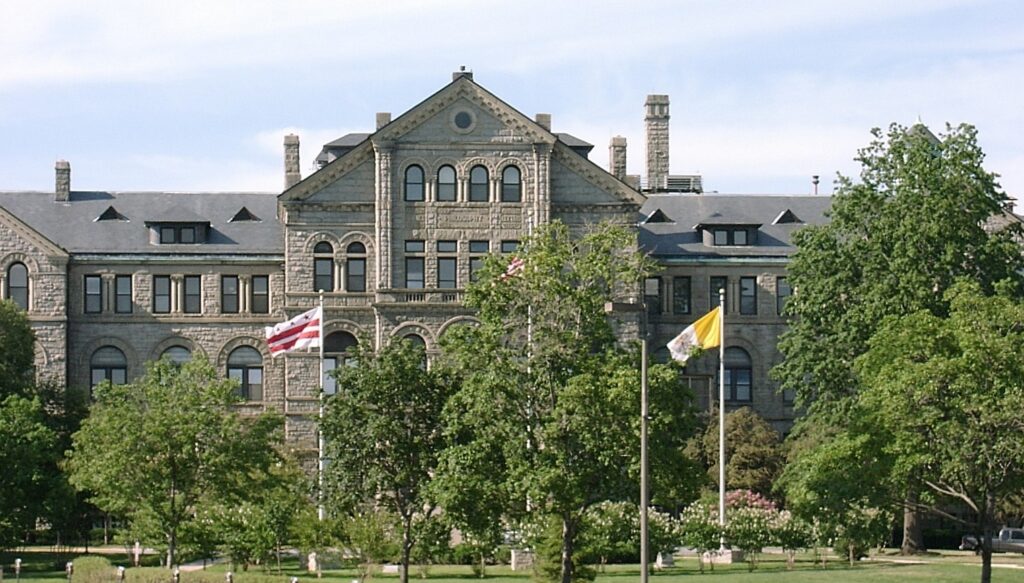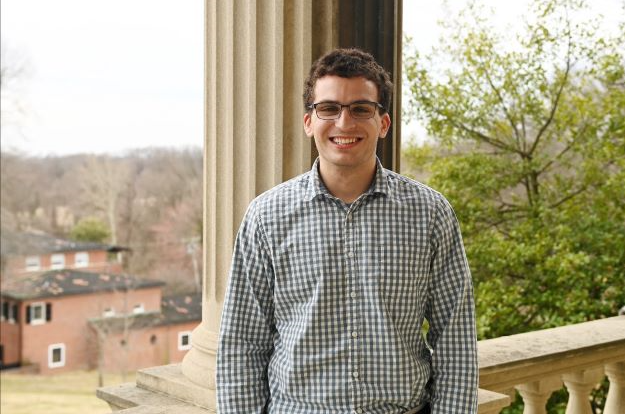There are many means by which young people worldwide can pursue and attain—in the words of the World Youth Alliance (WYA) Charter—”integral human development – characterized by physical, spiritual, mental, and emotional growth, in a climate of respect for the human person and the family.” However, during this time when fears, many based upon genuine crises, obscure our ability to find direction and hope in our communities, enriching opportunities such as those offered by WYA and The Catholic University of America’s Master of Arts in Human Rights Program that in turn offer us ways towards greater personal and communal flourishing may be overlooked. Yet they should not be in light of the intellectual gifts they provide.

St. John Paul II in his 1991 encyclical Centesimus Annus, a work that is a part of the curriculum for WYA’s Certified Training Program (also known as “the CTP”), identifies a few of the factors that contribute to the phenomenon of a loss of direction and stability shared among the young people of our time. Despite writing before COVID-19 and this pandemic’s cataclysmic transformation of the world in its social dimensions, St. John Paul II offers the following passage that may especially resonate with you today:
[su_quote][T]he constant transformation of the methods of production and consumption devalues certain acquired skills and professional expertise, and thus requires a continual effort of retraining and updating. Those who fail to keep up with the times can easily be marginalized, as can the elderly, the young people who are incapable of finding their place in the life of society…. (Centesimus Annus § 33)[/su_quote]
Indeed, the rapid changes of our time call for educational programs that give priority to the person, the human being who lives in community and without which any technology is useless and any proffered philosophy of human rights groundless. Amidst change, the subject of these changes endures; that is, the human person who remains free to do good. This is why the mission of World Youth Alliance is crucial. WYA and organizations like it focus our attention on the agents of history—people not so different from you and me—and the guiding principles that led countless young men and women to achieve great things, achievements which led to peace and flourishing within their communities and beyond despite the odds.
As a citizen of the United States of America, I am a proximate witness to and a subject of extraordinary technological transformations along with social fracturing and alienation, developments that are in many ways different from but also in many ways like those noted by St. John Paul II. Adapting to these changes is a necessity, but also simultaneously a positive opportunity for personal, vocational, and spiritual growth. A realization that began while I was an undergraduate student at The College of the Holy Cross, I knew I needed teachers who would encourage me not to see the world as meaningless and a place upon which I ought to impose my will without regard for the rights and human dignity of my fellow human beings. I desired something far more, far greater: knowledge that would equip me to serve those around me and live in accordance with the truth.

This desire was answered. I received a superb education while an intern at World Youth Alliance and as a graduate student within the Master’s Program in Human Rights offered by the Institute for Human Ecology at The Catholic University of America in Washington, D.C. These experiences fit well together. While taking the CTP, I read an assortment of works by strong thinkers, including: Jacques Maritain, Mary Ann Glendon, John Finnis, Paolo Carozza, and St. John Paul II. To my surprise, and good fortune, the intellectual work of these thinkers served as a well of knowledge from which Catholic University’s capable professors also drew for their students’ benefit. At Catholic University I was blessed to study under a distinguished group of human rights warriors and seekers of the truth, including: William Saunders, David Walsh, Mark Rienzi, Joseph Capizzi, Chad Pecknold, Marshall Breger, Geoffrey Watson, V. Bradley Lewis, Monsignor Anthony Frontiero, and John Grabowski. The MA Program also gave me the opportunity to work as an intern and later as a research assistant at the Religious Freedom Institute on Capitol Hill. Currently, I am employed at a premier international law firm, which would not have been possible without the above-mentioned prior experiences.
As such, I wholeheartedly encourage you to consider partaking in WYA’s events and programs along with Catholic U’s Master’s Program in Human Rights. I wager it will be worth your while.
[su_divider top=”no” margin=”0″]
Editor’s note: Starting in the winter of 2021, WYA North America and the MA in Human Rights at Catholic University of America began an exciting collaboration in which WYA guarantees one spring internship spot each year to a student from the MA in Human Rights program. To learn more about the MA in Human Rights to to apply, visit mahumanrights.com
Published: February 22, 2022
Written by Justin Lombardi, WYA USA National Committee member and WYANA intern alumnus







